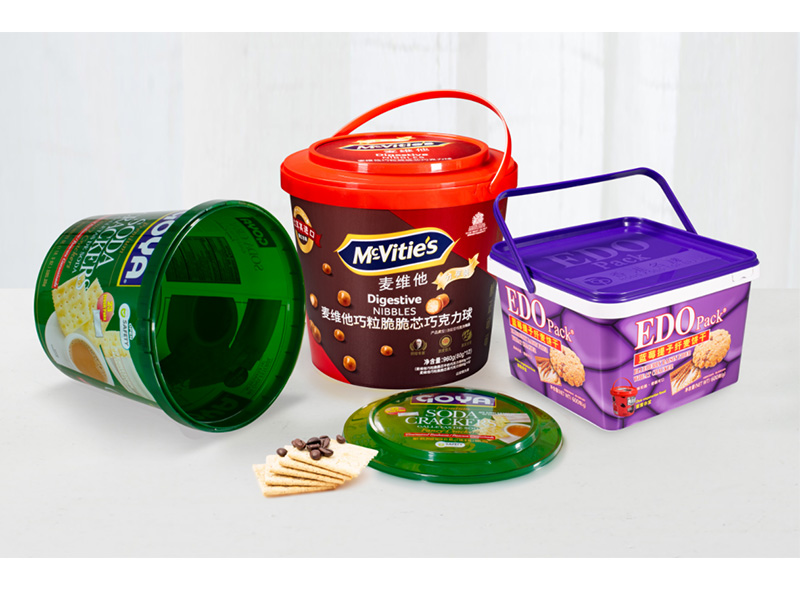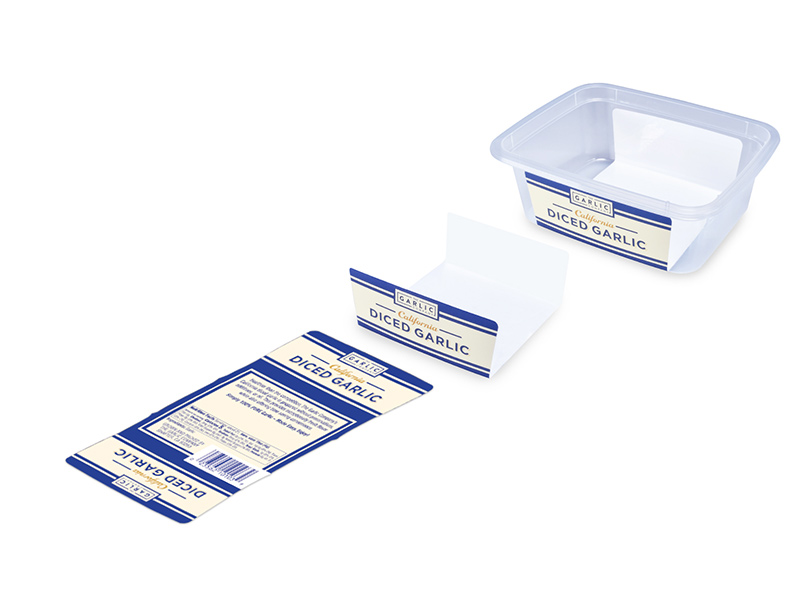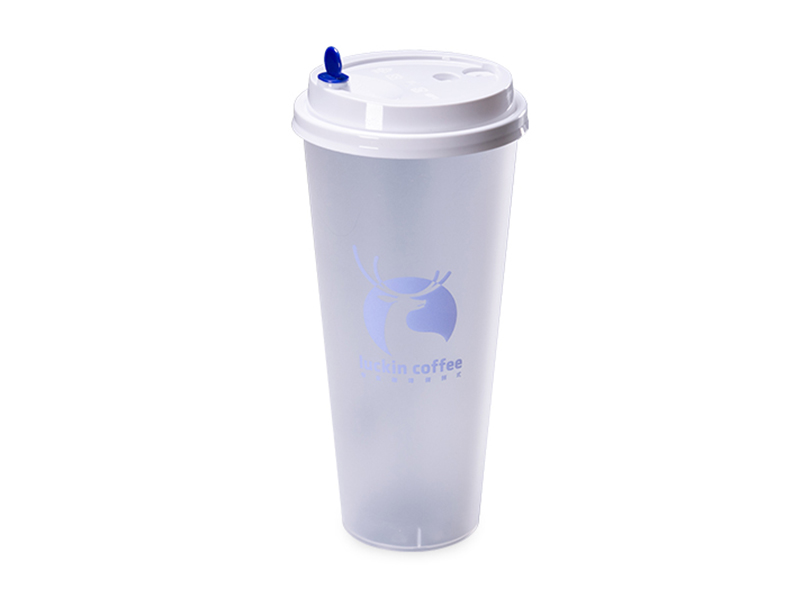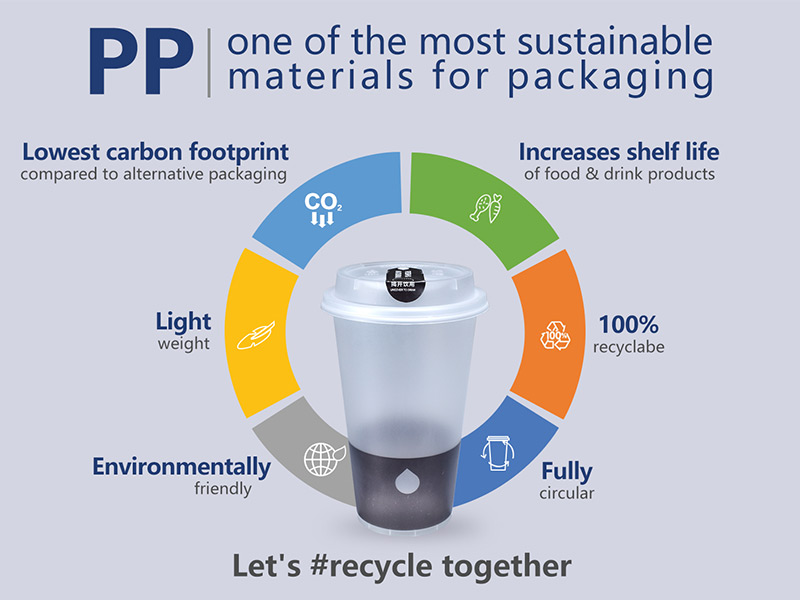

IML packaging (In-Mould Labelling) is an advanced decoration process where the design label is inserted directly into the mold during injection molding before the injection molded containers and label are fused together. Once the plastic pellets are heated, the molten resin is pumped into the mold, seamlessly fusing with the label. IML containers offer four key benefits: high-resolution colors, exceptional durability, environmental friendliness, and cost-effectiveness.
Plastic IML packaging is particularly popular for thin-walled disposable plastic containers with short shelf lives, such as those used in consumer packaging. Businesses in the food, personal care, home, and cosmetics sectors frequently rely on plastic molded packaging for their lightweight, visually appealing, and durable nature.

Traditional containers including silk printed cup, cup with paper sticker, both of these option the printed will be easily destroyed, and the print quality is not so stable like In-Mold Label.
In-Mold Labeling containers are constructed for mass production since they are created and decorated all at once as a single unit. Because it doesn't require as much time, personnel, or floor space as traditonal containers, In-Mold labeling is more affordable. It also uses less inventory than traditional packaging, such as post-mold paper labels and adhesives.
Traditional pressure sensitive labeling techniques call for adhesives that not all recycling facilities will accept. Depending on the type of plastic resin used to create the product, plastic packaging with IML can be totally recyclable and environmentally because the container and label are melted together without the need of outside adhesive.
In-Mold Labeling containers can be turned into plastic parts which are produced by recycled pp, because they are fully recyclable, which can help reduce carbon footprints and have a positive effect on the environment.
The water resistance of In-Mold labeling makes it a reliable labeling option that can withstand both humid environments and extreme temperature fluctuations (freezing / cooling conditions). In contrast to pressure sensitive labeling, IML is a permanent design method with excellent impact and scratch resistance because it fuses permanently to the container.
A container with in-mold labeling has the potential to be impervious to abrasion and chemicals depending on the hard coatings used to generate the manufactured plastic products.
Due to the label taking up some of the product's space in the mold, packaging is lighter in weight and helps save roughly 10-15% on the production of PolyproPylene(PP), 15-20% increase of the side wall's strength because the label becomes one part of the container, which enhance the pressure of the packaging.

Plastic packaging is produced using less energy than containers made of other materials. Currently, the plastic sector consumes 4,270 Gj of energy annually as opposed to 6,690 Gj produced by other materials, a 36% energy reduction, and injection molded packaging lightweight design and stackability allow it to save 50% of the trip requirement for it's transportation, thereby reducing fuel consumption and CO2 emissions.
We can create recyclable single material packaging thanks to our processing technology, which is an important capability that shouldn't be overlooked.
The phrase "in mold labeling" (IML) is derived directly from the method, which involves inserting a preprinted polypropylene (PP) label into a mold that forms the final product's shape, such as the shape of a butter tub. The molten PP is then placed to the mold, where it joins with the label and assumes the shape of the mold as it cures. As a result, the label and package merge.
In-mould labeling is the state-of-the-art labeling method for plastic packaging (IML process). An intricate method involves inserting pre-printed labels into cavity side of tool. This shows that labeling is done in advance of packaging production rather than later, negating the need for a separate adhesive sheet. The label and the container merge together to form an impenetrable whole after cooling, then ready decorated part is ejected.
Honokage's injection molding production environment is Class 100,000 and the microbiological testing room is Class 10,000.
The certificates Honokage is holding as: BRC, Sedex, ISO9001, ISO14001, FDA(IMS), these are the factory certified; besdies Honokage also have finished product food safety tested report and resin tested report.